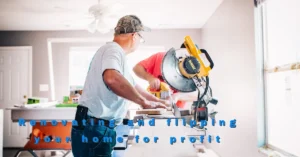How do I sell my commercial business property? When selling your business, your business operations and HQ are an essential and strategic part of your business.
Most businesses operate from a premise of some sort, so when it comes to exit planning, your decisions on what to do with your business premises is equally important as one of the essential items that require serious discussion and planning.
When it comes to planning, the first thing to do is to review how and what you use your office, factory shop, etc., as part of the business on a day-to-day basis. For that reason, the location may be the reason for the business’s success,. Coupled with the possibility that the business building and surrounds such as a hotel, fun park or caravan park may be the selling point. The business HQ property may also have been purpose-built, and your business sale value may be exploited if the business and property are sold as one package.
Further your business may have multiple premises to consider, which factor into the strategy along with what can be sold, consolidated, and required moving forward.

Strategic Review of the Business, how it operates and where
As part of the exit strategy, take a moment to review the business. In short look at the location it operates to help you work through your exit planning:
- Will, upon exiting or selling, the business be relocated?
- If the business is to be sold separately from the property, how does this affect the business disruption?
- CGT issues?
- Will the owner wish to sell or retain the property for the next generation, and how will this take place?
- Are there other uses for the property, e.g., development or retirement?
- If the business operates from home, consider whether this is the right location for selling the business.
- What are his wishes for the family and passing the property on to the next generation?
Is your property ready for Sale?
The owner needs to review the property to ensure it is in a sellable state. Take a moment and look at:
- Access and potential change of Council Zoning. What points of access are there in and out of the property?
- Fire safety: Does the property comply with fire safety and other emergency safety factors?
- Security: Is the property safe and secure?
- Surfaces: Do they feature lead paint and dust? Are the floors slippery, OHS?
- Hazardous materials and toxins: Does the building present any dangers associated with asbestos used in its construction?
- Old fuel tanks and other old substances – Banks hate these when it comes to financing
- Installed plant and equipment: Is the equipment, such as air conditioning systems, in good working order and maintained?
- Lighting: Is the property well-lit for the purpose you intend to use it?
- Air quality: Is the building adequately ventilated?
- Is your property have sentimental memories? Will this influence you and should be considered as being held for the next generation
Consider all options!
There are some options to consider when it comes to your business real estate you own. These can be classified as follows:
- Keep the property and treat it as a long-term investment
- Transfer to SMSF
- Sell with business
- Sell the property separately from the business
- Relocate the business and develop the property before selling the business
- Leave to next-generation – family farm
- Sale-leaseback arrangement
Sell or keep your freehold property
Let’s first look at why you may not sell the freehold property and choose to keep it and sell only the business:
- It might be too hard to consider – too much work
- The passing of the land onto family – save for subsequent generations, so needs to be kept
- The property value may exclude or reduce the number of potential interested buyers if the property is sold with the business
- You may start another business on the property
- It is better sold as a development opportunity
- Maybe a good long-term investment
- Strategy – especially for hotels etc., where you may wish to sell the business but take back long-term for a family
- Your real property may have been used to guarantee a business loan, i. Selling the property may impact another loan security used in another part of the business that is not being sold.
- The business may have multiple uses, or some businesses may work on the same premises.
Why you may consider selling the best option!
Opposite to the above, here are some valid reasons why you would sell the property at the time of selling the business:
- Some businesses need specialised buildings and assets from which to conduct their operations. Therefore, you may have the opportunity to sell the property to a buyer who appreciates the attributes of the building.
- When deciding to sell the business, will the purchaser of your business wish to relocate it to another location and may leave you with an unwanted property in the future
- Investors avoid investing in highly specialised assets like laboratories or dedicated production facilities. The primary risk for investors is the use of the building should the tenant company, the buyer of the business, default or not renew at the end of the lease period.
- If your business is specific, it would most likely be best sold with the business for the buyer to have business certainty.
- Time to reassess the financial plan for retirement
- Issues of maintenance that will require significant capital moving forward.
Whatever you intend to do, take time to make sure the structure you have chosen to hold the business vs the property works for you from a tax and estate planning perspective.
Reduce the CGT pain – use the tax concessions available for small businesses and the sale of your business commercial property:
- General 50% discount but not for Companies and reduced for SMSF
- 15-year exemption: If your business has owned the premises for 15 years and you are 55 or over, retiring, or permanently incapacitated, you will not have an assessable capital gain when you sell.
- If you have held the property for less than 15 years – it must be held for 7.5 years
- 50% active asset reduction: You can reduce the capital gain on your premises by 50%.
- Retirement exemption: Capital gains from the sale of your premises are exempt up to a lifetime limit of $500,000. If you are under 55, the exempt amount must be paid into a complying superannuation fund or retirement savings account.
- Rollover: You can defer your capital gain from the sale of the business until another event happens that crystallises the gain. For example, suppose you sell your existing business premises and buy different premises for your business within a specified period. In that case, you can defer your capital gain until the new premises is sold down the track.
Traps when utilising the CGT concessions.
It is crucial to check that assets, such as the business real property owned by the taxpayer, have been held by a ‘connected entity’ for at least half the business ownership period (or 7.5 years).
Where the necessary level of ‘connection’ does not exist, it may be possible to implement a restructuring without material cost to ensure that the entities are ‘connected. ‘
Selling your business property: do you meet the definition of an Active Asset?
Where there is a question of whether the amount paid constitutes “rent”, a pivotal factor to consider is whether the occupier has a right to “exclusive possession” of the property. The payments will likely be classified as rent if such a right exists. – means no active asset!
If the arrangement allows the occupier only to enter and use the premises for specific purposes and does not amount to a lease granting exclusive possession, the payments are unlikely to be rent.
In summary
- Exit planning requires advisors to review all aspects of the business operations, and the business location and premises impact the pathway chosen to obtain the best result for your client.
- Don’t ignore the legal implications of the property regarding lease and ownership.
- Think of generational ownership issues and how they may impact
- Look at specific property types and intrinsic matters
- If you ask a purchaser to relocate the business away from the present location – think about how and the implications for the business sale and ongoing stability. Also, the cost of relocation
- Plan the Tax, GST and stamp duty implications of the decision
- Don’t leave the planning too late
Of course, planning for any business should be part of every person’s business exit plan. Please note this is general advice. We welcome you to book a time to discuss your affairs and help you plan for a wealthy retirement.





